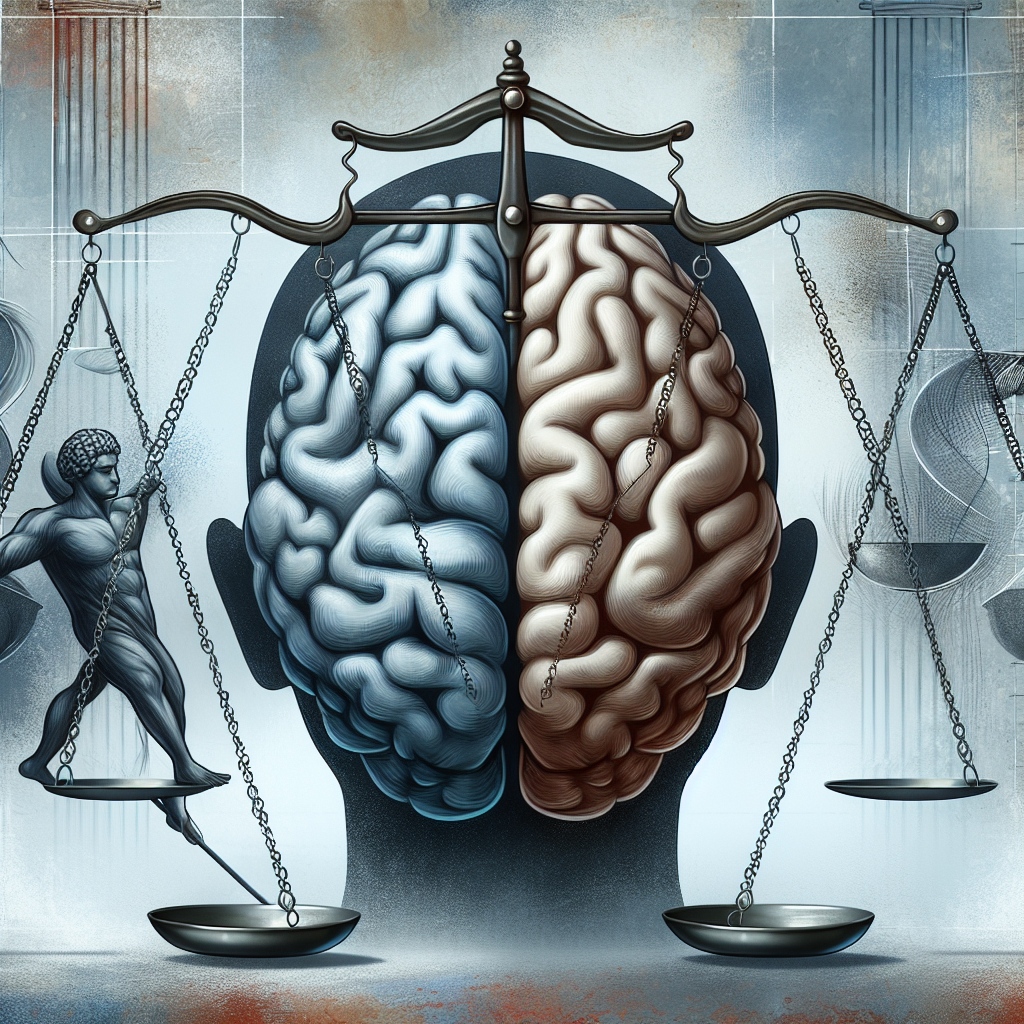
Introduction
Imagine standing in a courtroom, surrounded by experts discussing not just the facts of a case but also the intricate workings of the human mind. The intersection of psychology and law is more than a mere academic curiosity; it is the cornerstone of forensic assessment. This dynamic field plays a crucial role in informing legal decisions, with insights that are vital for both the justice system and society at large. In this article, we will explore the multifaceted world of forensic assessments, unraveling their significance, methodologies, and real-world applications. Let’s dive into The Intersection of Psychology and Law: Forensic Assessment Explained.
What is Forensic Assessment?
Forensic assessment refers to the use of psychological principles and methods to evaluate individuals involved in legal proceedings. It may encompass a variety of functions, including competency to stand trial, risk assessment for violence, and evaluations for sanity at the time of the offense. This assessment is integral to various legal domains, from criminal to civil law.
Key Functions of Forensic Assessment
Competency Evaluations
Primarily aimed at determining whether a defendant can understand the nature of the charges against them and participate in their defense, these evaluations are critical in ensuring fair trials.Risk Assessments
In cases involving potential future dangerousness, psychologists assess an individual’s likelihood of reoffending, guiding judicial decisions and parole conditions.Insanity Evaluations
To determine if a defendant was mentally competent at the time of the crime, forensic assessments provide essential insights into a person’s psychological state.- Child Custody Evaluations
In family law cases, psychologists evaluate parental fitness, ensuring the best interests of children are prioritized.
Methodologies in Forensic Assessment
The methodologies employed in forensic assessment are diverse, combining various psychological tools and techniques. Here, we will overview the most common approaches.
Standardized Psychological Tests
These tests offer objective measures of psychological traits and can include:
- MMPI-2 (Minnesota Multiphasic Personality Inventory): Assesses personality and psychopathology.
- WAIS (Wechsler Adult Intelligence Scale): Measures intelligence and cognitive ability.
Clinical Interviews
Clinical interviews are structured or semi-structured conversations that help clinicians gather detailed background information and assess psychological conditions.
Observational Methods
Behavioral observations in naturalistic or controlled settings can offer invaluable insights into an individual’s functioning and psychological state.
Case Study: The Competency to Stand Trial
One of the landmark cases illustrating the importance of forensic assessment is Dusky v. United States (1960). In this case, the Supreme Court ruled that a defendant must demonstrate a "sufficient present ability to consult with his lawyer with a reasonable degree of rational understanding" and have a "rational as well as factual understanding of the proceedings against him."
Analysis of the Case Study
The Dusky case emphasizes the intersection of psychology and law, highlighting the legal obligation to assess competency. Through expert testimony and psychological evaluation, the court ensured that the defendant’s rights were protected, setting a precedent that still guides competency evaluations today.
Understanding The Role of Forensic Psychologists
Forensic psychologists serve as the bridge between the realms of psychology and law. Their expertise is not just limited to assessment; they also provide court testimony, assist in jury selection, and aid lawyers in trial preparation.
Training and Qualifications
Forensic psychologists typically hold a doctoral degree in psychology, with specialized training in legal contexts. Certification from relevant professional bodies, such as the American Board of Professional Psychology, further solidifies their role as experts in forensic assessment.
Ethical Considerations in Forensic Assessment
Ethics play a monumental role in the relationship between psychology and law. Forensic psychologists must navigate complex ethical dilemmas, striving to balance their responsibilities to the court, the client, and the profession.
Important Ethical Guidelines
Informed Consent
Individuals undergoing assessment should be fully informed about the nature and purpose of evaluations.Confidentiality
While confidentiality is a cornerstone of psychological practice, in forensic settings, it can be limited by legal obligations.- Competence
Forensic psychologists must remain knowledgeable about the latest research and ethical standards to provide effective evaluations.
Real-World Applications of Forensic Assessment
Forensic assessments extend beyond criminal cases, impacting various legal domains. Let’s explore a few prominent applications in detail.
Criminal Cases
In criminal law, forensic assessments play a pivotal role in determining competency, risk, and sanity. A well-known example is the psychological evaluation of John Hinckley Jr., who attempted to assassinate President Reagan. His successful insanity plea underscores the profound implications of forensic assessments in legal outcomes.
Civil Cases
In civil law, forensic assessments are crucial for resolving disputes involving mental health, such as personal injury claims. For instance, in Tennessee v. Lane (2004), an assessment determined the psychological impact of a workplace injury, influencing the compensation awarded.
Family Law
In issues of custody and divorce, forensic assessments can be vital. Court-ordered evaluations help determine appropriate custody arrangements by assessing parenting capacity, mental stability, and individual family dynamics.
Comparative Analysis: Forensic vs. Clinical Assessment
While forensic assessments share similarities with clinical assessments, they differ significantly in purpose and context.
| Aspect | Forensic Assessment | Clinical Assessment |
|---|---|---|
| Purpose | Legal relevance, often with adversarial contexts | Treatment focus, aimed at diagnosis and therapy |
| Client Relationship | Evaluator is often not the therapeutic provider | Evaluator often maintains a therapeutic relationship |
| Confidentiality | Limited by legal requirements | Stronger focus on maintaining confidentiality |
| Outcome | Influences legal decisions | Guides treatment decisions |
The Future of Forensic Assessment
As we look toward the future, the intersection of psychology and law continues to evolve. Advances in technology, such as artificial intelligence and neuroimaging, may enhance the accuracy of forensic assessments.
Emerging Trends
AI and Predictive Analytics: The use of machine learning algorithms may transform risk assessments, offering data-driven insights into potential outcomes.
- Neuroscience: Understanding brain function in relation to behavior can guide forensic assessments, adding a new dimension to competency and sanity evaluations.
Conclusion
The intersection of psychology and law is a vibrant and essential field that shapes our understanding of human behavior in legal contexts. Forensic assessment is not just a tool; it is a vital component of the justice system, ensuring that decisions made in court are informed by psychological realities. As we continue to explore this intersection, one thing remains clear: the role of forensic assessment is indispensable in the pursuit of justice.
Whether you are a legal professional, a psychologist, or just someone interested in understanding the nuanced relationship between these two fields, grasping the intricacies of The Intersection of Psychology and Law: Forensic Assessment Explained can empower you to engage thoughtfully in discussions surrounding justice, mental health, and human behavior.
FAQs
1. What qualifications do forensic psychologists need?
Forensic psychologists typically hold a doctorate in psychology, along with specialized training in forensic assessment. Many pursue certification from professional boards.
2. What is the process of a forensic assessment?
The process usually involves standardized testing, clinical interviews, and observational methods to gather comprehensive information about the individual in question.
3. Can forensic assessments be challenged in court?
Yes, the methodologies and conclusions of forensic assessments can be scrutinized in court, often requiring the evaluator to defend their findings.
4. What ethical challenges do forensic psychologists face?
Forensic psychologists must navigate issues of informed consent, confidentiality, and their dual role as both evaluator and potential witness.
5. How is forensic assessment relevant to civil law?
Forensic assessments are critical in civil cases, influencing decisions related to personal injury claims, workplace disputes, and family law matters.
By understanding the intersection of psychology and law, individuals can appreciate the crucial role forensic assessments play in shaping justice and safeguarding mental health in legal contexts.













